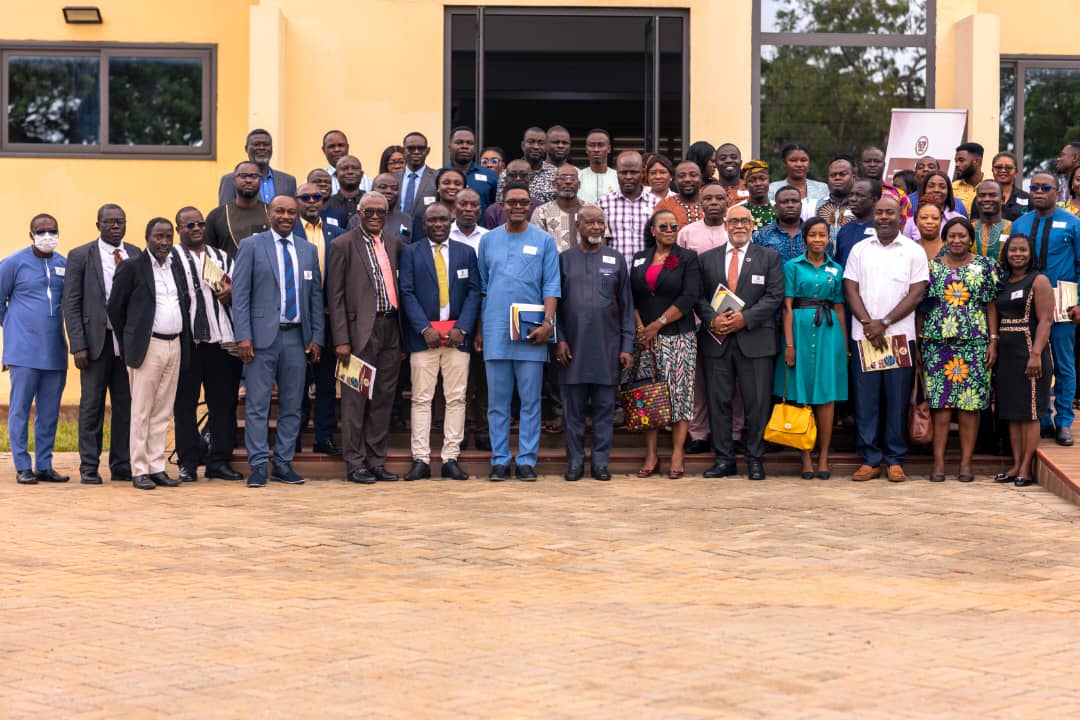Strategic and practical ideas to deepen decentralisation and local governance in Ghana were the focus of discussions at the maiden International Conference on Decentralisation, Local Governance, and Sustainable Development. Spearheaded by the Ministry of Local Government, Decentralisation and Rural Development (MLGDRD), in collaboration with the Institute of Local Government Studies (ILGS), the two-day event provided a platform for key stakeholders to exchange insights and explore pathways to foster inclusive, democratic governance for sustainable development.
The conference, held from September 11-12, 2024, at the ILGS, brought together a diverse group of participants, including researchers, academics, policymakers, practitioners, and students from across the globe. The theme of the event, “Deepening Decentralisation and Local Governance to Foster Inclusive and Democratic Governance for Sustainable Development,” framed discussions around strengthening local governance structures to meet the demands of inclusive development and democratic principles.
Delivering the keynote address, Hon. Martin Adjei-Mensah Korsah, Minister for Local Government, Decentralisation, and Rural Development, underscored the importance of building capacity within local government institutions. He stressed that the success of Ghana's decentralisation efforts hinges on the competence of local government officials and employees, pledging the Ministry's commitment to ongoing capacity-building initiatives. He referenced the recently launched Local Economic Development Policy (2024-2029), along with its Implementation Plan and accompanying Practitioners’ Manual, as a key step towards empowering local economies and promoting sustainable development.
"The goal of the new policy," the Minister stated, "is to create a conducive environment at the district level for local business growth, decent employment opportunities, and economic empowerment for all Ghanaians. This will drive the broader agenda of decentralisation and sustainable local governance."
The conference featured a series of plenary and parallel sessions, with participants delving into a range of pertinent themes, including Building Local Economies for Sustainable Growth and Prosperity, Governance Dynamics for Balancing Authority and Efficiency, Decentralisation, Inclusive Governance and Development, and Building Sustainable and Healthy Communities for a Resilient Future. These discussions aimed to equip stakeholders with the tools and knowledge to navigate the evolving landscape of local governance.
Attendees included representatives from MLGDRD, Metropolitan, Municipal, and District Assemblies (MMDAs), the ILGS, and partner institutions such as the University of Ghana, GIMPA, the University of Cape Coast, and the University of Education, Winneba. International organisations such as the United States Agency for International Development (USAID), the Swiss State Secretariat for Economic Affairs (SECO), as well as participants from countries including the USA, Burkina Faso, India, Palestine, South Africa, Nigeria, and Kenya, also contributed to the dialogue.
The conference provided a valuable opportunity for cross-border learning and collaboration, furthering the global commitment to decentralisation as a means to achieve inclusive and sustainable development.
SOURCE: Sandra Owusu Asamoah
(Public Relations Unit MLGDRD)


